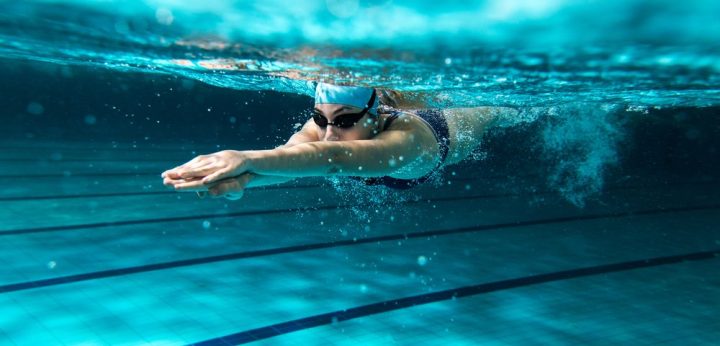Exercise and PH: Becoming Active Again After Diagnosis

After I was diagnosed with pulmonary hypertension (PH), I was so scared of doing any further damage to my heart that I stopped exercising altogether. I even gave up cycling, which was my main way of getting around. I spent a lot of time in bed and led a sedentary life. If I’m honest, I was miserable. I felt that I could no longer engage in any of the activities that I once loved.
However, when I went to see my team of specialists, they encouraged me to become active again. They said that as long as I wasn’t lifting weights, some light cardio could be good for me. I felt tentative. I couldn’t banish the thought that if my heart was under stress, surely exercising would make it worse.
My parents joined in with gentle nagging, so I decided to follow their advice. Returning to the gym felt daunting, and I wasn’t convinced it was the best option for me, so I tried swimming.
I have always loved swimming; I was a regular water baby as a child. But I knew that it was important to take it easy; no one wants to find themselves gasping for breath in the middle of a pool. So I started with little exercises, kicking my legs while holding onto the sides. I worked up to swimming with a float. I found that when I used my arms I would become more breathless, so holding a float worked well for me. I may have looked a little weird, but I didn’t care because I was so happy to be active again.
Join the PH forums: an online community especially for patients with pulmonary hypertension.
Since then, I have read about the benefits of exercise for PH patients. The idea is that light cardio can help strengthen the heart. This knowledge has given me confidence, and I now try to exercise at least once a week. I go for a walk every day, even if it’s just a short stroll around the block. I’ve found that if I warm up properly and take breaks when I need to, I’m more capable than I’d thought. Yoga is ideal for those weeks when I might not feel up for a swim. I’ve discovered lots of yoga videos on YouTube, including some specifically for PH patients.
I’ve found that exercise is not merely good for me physically, it’s done wonders for my mental health, too. Going outside and getting your blood pumping can help you to get out of your head. And the endorphins don’t go amiss, either.
Of course, I still have days when I don’t feel that I can do much more than lie in bed. But I try to be active whenever I can as I know that it does me a world of good.
***
Note: Pulmonary Hypertension News is strictly a news and information website about the disease. It does not provide medical advice, diagnosis, or treatment. This content is not intended to be a substitute for professional medical advice, diagnosis, or treatment. Always seek the advice of your physician or other qualified health provider with any questions you may have regarding a medical condition. Never disregard professional medical advice or delay in seeking it because of something you have read on this website. The opinions expressed in this column are not those of Pulmonary Hypertension News or its parent company, Bionews Services, and are intended to spark discussion about issues pertaining to pulmonary hypertension.








Debbie
That is so awesome! I am an exercise physiologist at the Cleveland Clinic working on a study with PAH that involves cardiovascular exercise 5 x week. Everyone is different, but all of the patients have seen great results thus far.
Keep up the good work!!!
Bekah Calverley
Absolutely so true!! I have had PH since childhood so don't know any differently but swear by the benefits of exercise. I always say that like a star athlete you have to train your body to increase what it can do. When I stop exercising and start back up I have to start again and reset what I'm capable of. I try to post some of the things that keep me active @PHitness_fanatic on Instagram. Keep up the exercise!